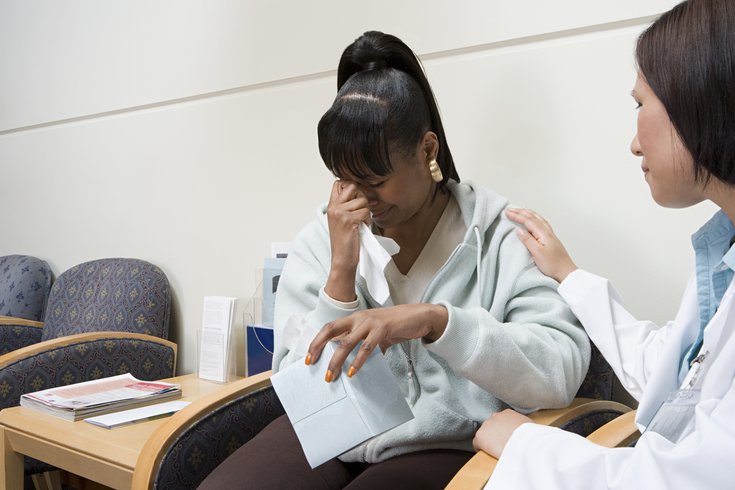
February 23, 2023
 Source/Image licensed from Ingram Image
Source/Image licensed from Ingram Image
Yale University researchers found more than twice as many Black Medicaid patients than white patients don't receive any diagnostic procedures after reporting abnormal uterine bleeding – the primary symptom of uterine cancer.
Black women are more likely to be diagnosed with uterine cancer at a later stage than other women, a disparity that in turn reduces their chances of survival. Delayed diagnostic testing may be one of the primary reasons for this gap, a new Yale University study suggests.
This racial disparity is one of many in uterine cancer. Black women also have a higher incidence of uterine cancer than white women and are more likely to die from it. They tend be diagnosed with more aggressive forms, too.
The benefits of an early diagnosis are eye-popping. When uterine cancer is diagnosed when it is confined to the uterus, nearly 95% of cancer patients survive at least five years. The five-year survival rate drops to 70% when uterine cancer spreads to other nearby areas or the lymph nodes. It is a meager 18% after the cancer has spread to other parts of the body.
When a person experiences abnormal uterine bleeding – the most common symptom of uterine cancer – the American College of Obstetricians and Gynecologists recommends one of several cancer screening procedures: a biopsy of the endometrial lining, a transvaginal or pelvic ultrasound, or a hysteroscopy, in which a physician uses a small, telescope-like device to examine inside the cervix and uterus.
But more than twice as many Black patients than white patients don't receive any of these procedures, the Yale researchers found by examining a database of more than 44 million Medicaid patients. And the Black patients who received these procedures are more likely to wait at least two months after reporting abnormal uterine bleeding.
This disparity played a role in another: 11.3% of Black patients waited more than a year to receive their cancer diagnoses; that was true of only 8.3% of white patients.
"Overall, we found a pretty consistent difference in the quality of care received by Black and white patients," said Xiao Xu, an associate professor of obstetrics, gynecology and reproductive sciences at Yale School of Medicine.
The researchers are continuing to evaluate other datasets to better understand the contributing factors to racial disparities in uterine cancer and how to best address them. Other possible factors include access to specialist care and a lack of knowledge about the symptoms of uterine cancer. The researchers also are comparing their findings among Medicaid patients to other patient populations.
Institutional racism and socioeconomic factors like education, income and occupation are known to impact health outcomes and cause health disparities. Prior studies have found that Black and Hispanic women are less likely to receive a hysterectomy or minimally invasive surgeries. They also are less likely to have lymph node sampling or dissection.